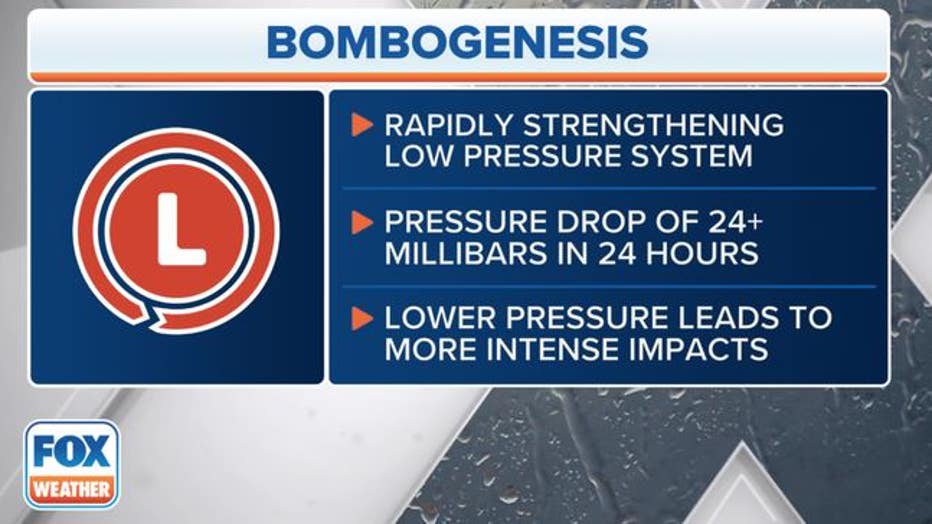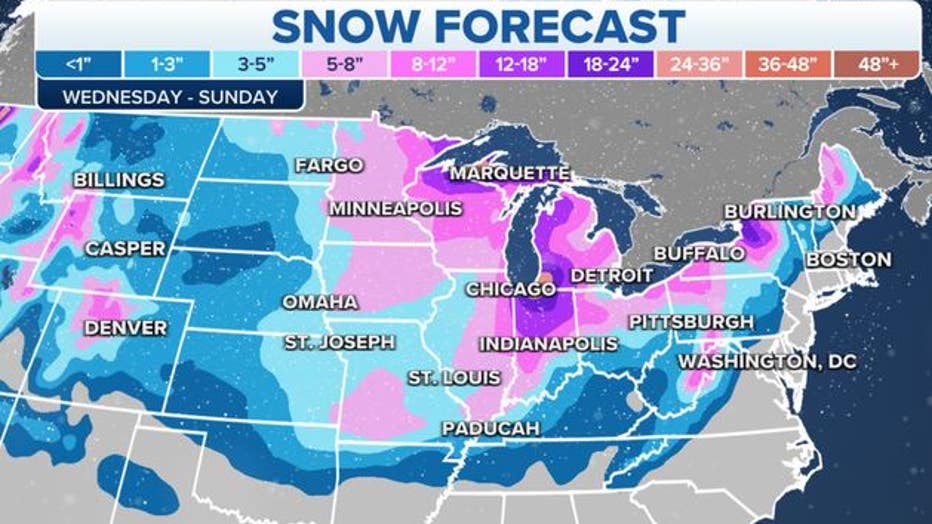What is a bomb cyclone? Here's a simple explanation
What is a bomb cyclone and how will it affect Florida?
FOX 35 Storm Team Chief Meteorologist Jayme King explains what a bomb cyclone is and how it could affect Florida.
ORLANDO, Fla. - As a major winter storm moves across the U.S. leading up to Christmas, you may have heard meteorologists mention the term "bomb cyclone" that could potentially cause major impacts on millions of holiday travelers this weekend.
So what is a bomb cyclone? FOX 35 Storm Team Chief Meteorologist Jayme King says it's a scary name for an intensifying winter storm.
"Basically a center of low pressure that undergoes a big drop in pressure indicating strengthening. Another reference to strengthening is known as ‘bombogenisis,’" he explained.
Rapid intensification brings big impacts such heavy rain and snow, high winds and even coastal impacts (if the low manages to move or develop over coastal waters) and coastal flooding can result. He says some of the strongest Nor'easters have "bombed-out" and can be described as bomb cyclones.
Cyclone is in reference to the systems counter-clockwise rotation.
RELATED: Potential 'bomb cyclone' threatens holiday travel plans in and out of Florida
FOX Weather reports that Winter Storm Alerts take up most of the central U.S. and the Pacific Northwest, as millions of Americans brace for the effects of this massive winter storm. Wind Chill Alerts alone were issued for more than 70 million Americans through Saturday.

FOX Weather

FOX Weather
In Florida, forecasters are tracking weather that could bring the coldest Christmas since 1983 to the state. Freeze warnings are looking likely during the holiday weekend and FOX 35 WEATHER IMPACT DAYS are being issued for Saturday and Sunday to account for these frigid changes.
Wake up temperatures Christmas Eve morning will be down in the 20s and 30s all across the Central Florida viewing area. Highs only rise into the 40s and low 50s on Saturday. Christmas Day brings similar temps with freeze warnings looking likely then as well.
Wind-chills or "feels like" temps will range from the teens to 20s during the morning hours.

